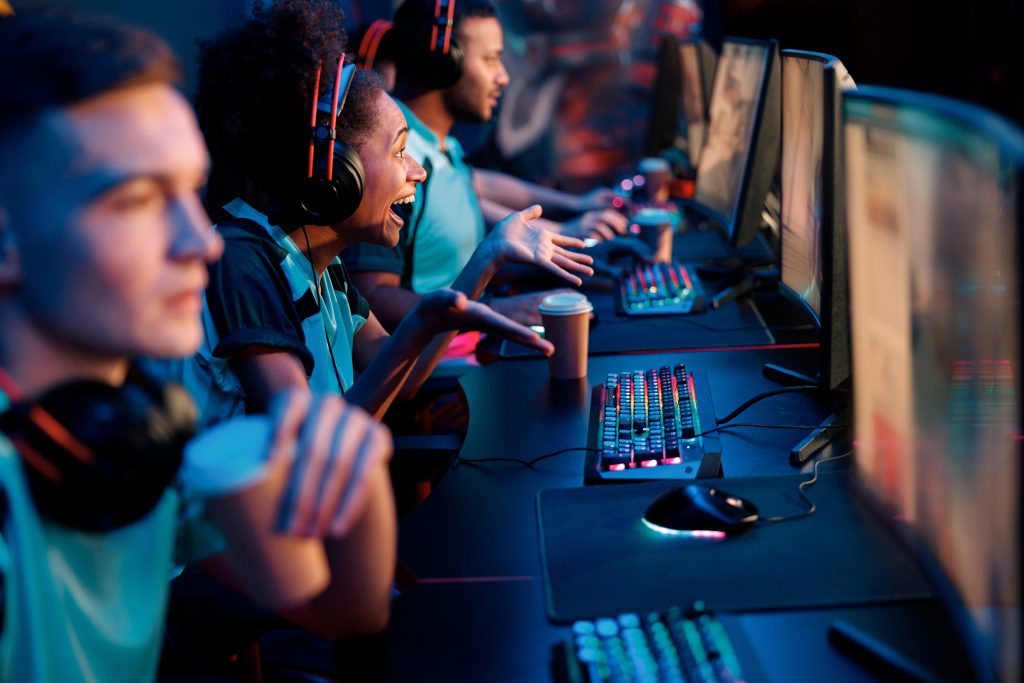Maybe you can play alone and feel clever. But when the screen splits or a lobby fills, a different current runs through the room. The charm of co-operative mode isn’t just extra hands; it’s shared intention — two minds tracing one plan, recovering from one mistake, laughing at one spectacular wipeout, then trying again with better timing and a smarter route.
In that light, chance takes a back seat. Unlike roulette, co-op tilts the excitement toward intention and trust; the thrill is reading a teammate’s breath more than a wheel’s spin. He learns timings, the pause before “go,” and the small rituals that make strangers feel like a squad — the “ready?” ping, the counted three, the mid-fight revive that says more than words.
What Co-Op Changes About Play
Co-op turns difficulty into dialogue. A hard boss is no longer a wall but a whiteboard. Roles emerge naturally: one kites the adds, one manages resources, one calls rotations. Success becomes a mosaic of small competencies that feel bigger together than they ever would solo. Failure, meanwhile, is interesting — a chance to re-route, not a reason to quit.
Hidden Curriculum of Co-Op
- Shared Mapmaking — He and a partner draw invisible lines across the level: “I’ll take high; you thread low.” The route becomes a duet.
- Low-Ego Leadership — Leadership passes like a baton. He calls one fight; she reads the next. Authority is practical, not permanent.
- Rhythm Over Reflex — The team learns beats: stun, burst, reset. Precision matters, but cadence wins nights.
- Repairing on the Fly — Mistakes aren’t game over; they’re a pivot. Someone whiffs, someone covers, the plan breathes.
- A Vocabulary of Care — A dropped ammo pack, a shield bubble, a last-second heal — each action says “I’ve got you.”
Why Co-Op Often Feels Kinder
The incentives point inward — protect, coordinate, uplift — so the tone follows. Even silence becomes collaborative; a ping or emote compresses a sentence into a glance. He learns to listen for footstep rhythm or the way a friend pauses before a risky jump. Trash talk fades when victory depends on the person beside him, not the opponent across the map.
Bridging Skill Gaps Without Friction
Input differences stop mattering when tasks split. A controller player can anchor crowd control while a mouse-and-keyboard partner handles precision duties. Accessibility settings multiply options — aim assist, color filters, scalable UI — and no one has to apologize for how they play. The team drafts around strengths instead of policing weaknesses.
From Living Room to Long Distance
Distance shrinks. A sibling across the country becomes a Friday ritual; a partner down the hall becomes a co-pilot. The living room is a LAN by another name, and the headset is a campfire. Between sessions, the lessons spill over: he gets better at timing conversations, dividing chores, and noticing when someone else is overloaded.
Design Patterns That Keep Teams Together
- Overlapping Power, Not Solo Locks — Roles are distinct but flexible, so nobody becomes “the revive mule.”
- Interesting Failure States — Partial progress carries forward; wipeouts teach, they don’t humiliate.
- Short Loops, Long Arcs — Five-minute missions feed into week-long goals, respecting both quick nights and deep weekends.
- Clutch Space by Design — Systems leave room for saves and hero moments without demanding them every minute.
- Frictionless Re-Queue — Instant retries, smart checkpoints, and clear objectives keep momentum alive.
The Quiet Tech Behind the Bond
Netcode and matchmaking rarely get applause, yet they make the magic sturdy. Stable frame pacing means callouts land on rhythm; good voice filters keep fatigue down; cross-play lets friends meet where they are. When the plumbing disappears, trust shows up — and trust is the real resource co-op spends and replenishes.
Why He Keeps Coming Back
A well-run raid can feel like a seminar in logistics; a puzzle game can feel like a lab for creative problem-solving. Co-op respects different moods — low-stakes nights farming materials, high-focus runs chasing a flawless badge — and it remembers that games are social tools disguised as adventures. He might boot up for loot, but he stays for the small, wordless confirmations: the ping at the right second, the revive in the chaos, the laugh after a wipe that somehow makes them stronger.
A Small, Certain Verdict
The beauty of co-op is simple: shared intention turns effort into story. Two people align on a plan, carry each other through the rough parts, and sign the victory together. That signature is what he remembers days later — not just that they won, but that they did it as one.
Tyler Harrison is a huge horror movie fan always on the hunt for the next big scare. His reviews offer deep insights into classic slashers and the latest releases, exploring themes and innovative techniques. Tyler’s passion for horror makes his perspective essential for any enthusiast.




![‘Jay Kelly’ Review – Noah Baumbach Makes A Case For The Magic Of Movie Stardom [NYFF 2025] ‘Jay Kelly’ Review – Noah Baumbach Makes A Case For The Magic Of Movie Stardom [NYFF 2025]](https://cdn.geekvibesnation.com/wp-media-folder-geek-vibes-nation/wp-content/uploads/2025/11/Jay-Kelly-JKELLY_20240523_15320_C2_R-300x180.jpg)

